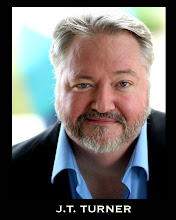Well, you know
We all want to change the world- The Beatles
This time of year, many of us reflect on where our lives are and make decisions about what we want to change. The famous New Year Resolution usually lasts about 4 weeks, and then is lost. I am no exception to this rule, many of my goals fall by the wayside. But I do actually achieve more changes/goals than many people I know, so I thought I would wrap up 2009 with some advice on setting some new goals, and how to make them work.
First is mindset. I don't think of these things as resolutions so much as a goal. Goal, not dream, although to me my goals and dreams are the same thing. My wishlist IS a To-Do list, I don't just have a vague fantasy about what I want to do, I actually implement plans to do them. Sometimes they fail, gloriously fail, but I always try. And I follow the advice of Yoda, and believe in doing over trying.
Most times, we fail at things because we never get past the wishing stage. The old adage that well begun is half done is true. By actually implementing a plan, doing things, a goal becomes a reality.
But understand that there are usually 2 different types of things on a Resolution list, goals and habits. Goals are basic things to achieve, a trip, a role, a new skill. Habits are things we want to change in our lives or introduce permanently. Sure, sometimes these things overlap, a desire to learn Karate may turn into a lifelong habit, but generally we can view a resolution, at the start, as a goal or habit.
Most of us will have 4-5 habits we want to change, (quit smoking, exercise more), and about the same number of goals, (trip to Bermuda, work with elderly).If you follow the instructions below, I think you can greatly increase your chance for success.
HABITS
1- Write down 5 things you want to achieve. Weight loss, exercise, more reading, stop smoking, whatever. Don't just think of them, write them out.
2- Commit to doing the easiest habit first. Then take that habit, and break it down into 7 small steps. If you want to exercise more, step one might be 15 minutes of walking a day as your first step. Step two might be a half hour of walking. Step 3 might be to add 10 minutes of Wii fit in twice a week, etc.
3- Publicly commit to your habit. On your Facebook page, LiveJournal, blog, publicly state what you hope to do. Or take a good friend into your confidence about the habit.This step is called accountability, and works for most people.
4- Try and have a "trigger" for the activity or step. A trigger is something that makes you remember and engage in the activity. For example, always walk after dinner.Always practice piano during the commercials for Jeopardy!. Exercise right after you put your contact lenses in. This trigger helps form your new habit.
5- Continue for 7 weeks, the time it take us to create a new habit. From that point, the new habit is a part of your life. Now move on to your next item.
GOALS
1-Like a habit, write them out, and be specific.
2- List what steps you need to take to achieve the goal. For example, if your goal is a trip to Italy you may have to get a passport, open a special account, save the money, book the flight.
3- List a time frame to achieve each step. Passport by the end of January, save $500 by the end of March.
4- Try and stay on target, (thank you Gold Leader), but be flexible and reasonable.
Hey, JT, this is an acting blog, what about acting goals? Great question, but the above holds true. Being a better actor, for example, is a habit. Think about taking lessons, getting coaching, attending a seminar, voice lessons once a week.. Perhaps meeting once a week with other actors to work on scenes or do some improve.
Acting more often on stage might be a goal, and committing to 2 auditions a month would be a great first step towards that achievement. (That doesn't always get you on stage as often as you want, but you can only control what you can control. Showing up at auditions is what you can control).
AND NOW THE SHAMELESS SELF PROMOTION
We run great classes at my company. Private lessons, group lessons,audition preparation, private coaching for speeches, if it falls in the realm of performing we can help you. We are located in Ipswich, MA, but can also do long distance coaching by phone or email. Check out our Winter classes at theactorscompany.org. Don't see what you need? Drop us a line at jtturneractor@gmail.com








